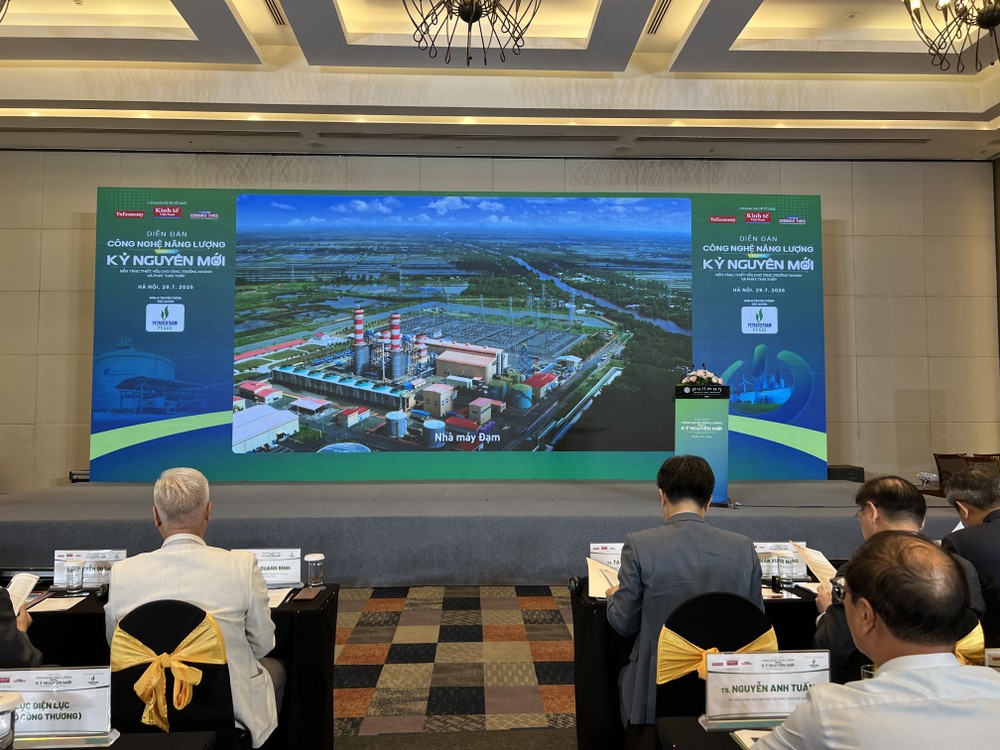This morning, in Hanoi, Vietnam Economic Times – VnEconomy – held the forum titled ‘Energy Technology in the New Era’ to evaluate and analyze the present condition of the energy sector, recognize opportunities and challenges, and suggest innovative solutions for the industry.

The forum drew more than 150 participants, including representatives from government departments, ministries, research institutes, universities, industry associations, experts, and energy-sector businesses.
This is an urgent matter as Vietnam encounters considerable difficulties regarding energy security. The demand for energy, particularly electricity, is expected to continue increasing at an annual rate of 8-10 percent in the years ahead. This expansion is crucial for achieving economic development objectives and for Vietnam to attain high-income status by 2045.
During his address at the Energy Technology Forum, Vice Chairman Ta Dinh Thi of the National Assembly’s Committee on Science, Technology, and Environment highlighted that Vietnam is confronted with an increasing energy demand to facilitate economic growth. Coupled with its pledge to reach net-zero emissions by 2050, the shift towards renewable energy and the implementation of advanced technologies has become not merely an option but an "inevitable path."
With the same viewpoint, President Phan Xuan Dung of the Vietnam Union of Science and Technology Associations (VUSTA) highlighted the vital importance of science and technology. He regards it as a primary national policy and the most significant driving force behind socio-economic progress overall, particularly within the energy sector.
To mitigate the considerable pressures arising from both increasing demand and the need for emission reductions, President Phan Xuan Dung stated that science and technology are essential for thoroughly tackling challenges, turning obstacles into fresh development opportunities.
The Party and the State have implemented several essential directives and policies concerning the energy sector. A notable instance is the Politburo's Resolution No. 55-NQ/TW on the strategic framework for national energy development up to 2030, with a long-term vision extending to 2045.
In addition, the updated National Power Development Plan for 2021–2030, which envisions progress through 2050 (Power Plan VIII), establishes ambitious goals for renewable energy. It targets non-hydro renewable sources to account for 28–36 percent of electricity generation by 2030, increasing to 74 percent –75 percent by 2050.
























